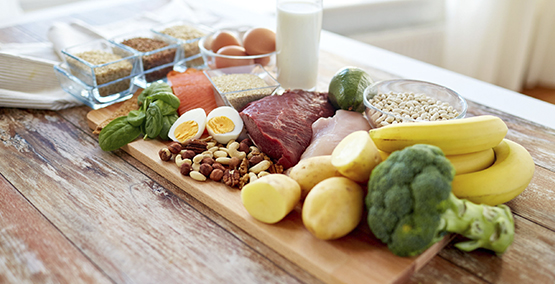
The Latest and greatest treatments for IBD: What to believe
What’s the best IBD medicine for me? Confusion on television and in your inbox....
See moresign up for our newsletter
Subscribe
We know that the foods we eat can change the intestinal microbiome. We also know that the microbiome can protect the intestines as another line of defense for the immune system. Current thought leads us to believe that Crohn's disease results from an overreactive immune system.
So, could it be possible that consuming a proper diet could help treat IBD? Below is the current research on nutritional therapies and diets that could possibly help manage IBD.
Enteral therapy (tube feeding) is as effective as some medications in helping children with newly diagnosed Crohn's. Additionally, there are no harsh side effects that frequently accompany IBD medicines.
Intravenous therapy (IV nutrition) is also effective in treating Crohn's disease. It does, however, have its own set of side effects and is not recommended for long-term use.
A number of diets have become popular among patients (many are actually similar). Currently, there is not enough research to know how effective a particular diet is.
The specific carbohydrate diet is based on the theory that starch and other carbohydrates are poorly absorbed and cause bad bacteria growth in the small intestine. A few small studies have shown that children seem to feel better and have clinical improvements in their IBD. Many adults report feeling better on the SCD too; however, the diet is hard to stick to. If unsupervised, the diet can also lead to low nutrients due to its restrictive nature.
The FODMAP diet is often used in patients with IBD. Like the specific carbohydrate diet, it restricts most carbohydrates to improve digestion and discover food sensitivities. This diet is low in fiber and risks low nutrients.
The paleo diet is based on the assumption of what ancient humans (hunter-gatherers) used to eat. Similar to the SCD and FODMAP diet, paleo does not allow many carbohydrate sources such as grains, starchy foods, and legumes. The paleo diet has many criticisms over the accuracy of historic eating patterns and currently has no published results for in IBD.
The AIP adapts the paleo diet as part of an integrative approach to lessen the symptoms and causes of autoimmune illnesses. Along with following the paleo diet, the protocol also includes daily exercise, improving sleep, and stress management.
The CDED removes gluten, foods that are high in fat (especially animal fat), and many of the processed foods with thickeners and emulsifiers. The diet also adds liquid formulas to make sure patients get enough calories and nutrients. Current research shows promising results for Crohn's treatment.
A lactose-free diet is helps those who develop lactose intolerance due to their IBD. The diet is not part of IBD treatment.
A gluten-free diet helps patients who have celiac disease, but there's no evidence that it helps patients with IBD.
Momentum is building to study nutritional therapy for Crohn's disease. The only therapy proven effective for IBD is exclusive enteral nutrition or total intravenous (IV) nutrition. While some diets show promising results, more research is needed to determine which diets are best for IBD.
This article, as well as all others, was reviewed and edited by a member of our Medical Advisory Board.
Subscribe Be the first to know